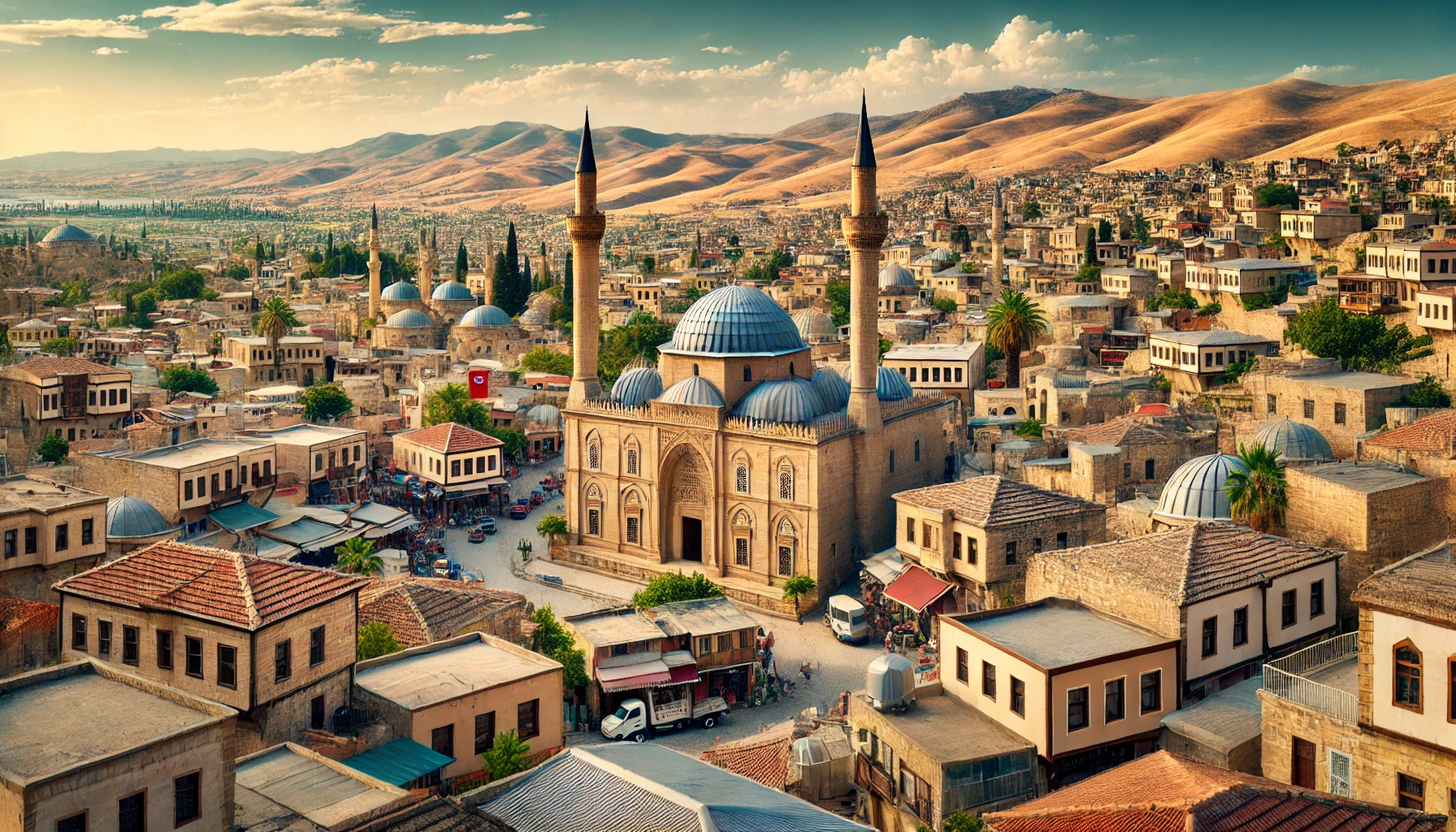


Visit Turkey
Explore Turkey, Embrace Adventure
No adress data
Where can I find ATMs in Turkey?
ATMs are widely available in cities, towns, and tourist areas, including airports, hotels, shopping centers, and banks.
Common Questions About Visa, Money, Telephone
Yes, there may be daily withdrawal limits imposed by both your home bank and the ATM operator. It’s a good idea to check these limits in advance.
Yes, many international GSM operators provide coverage in Turkey. It’s advisable to check with your mobile carrier about international roaming services before you travel.
You will need to activate the international roaming function. Contact your GSM operator to:
- Confirm that your phone will work in Turkey.
- Understand the costs associated with international roaming.
- Activate the international roaming service before you travel.
The ideal currency to bring to Turkey is the Turkish lira, as it’s the local currency. US dollars are also widely accepted and easily exchanged at banks and currency exchange offices. However, the most cost-effective way to pay in Turkey is by using a multi-currency travel debit card, which can help you avoid the fees associated with converting cash.
Traveling to Turkey and need access to cash? You’ll find that withdrawing money from ATMs is a convenient and straightforward process. Here’s what you need to know:
Using ATMs in Turkey
Currencies Available:
- Visitors can withdraw money in Turkish Lira (TRY) as well as in Euros (EUR) and U.S. Dollars (USD) from many ATMs across Turkey. However, Turkish Lira is the most commonly dispensed currency.
Language Options:
- The majority of ATMs offer English and other language options, making it easy for foreigners to navigate the transaction process.
Steps to Withdraw Money
- Insert Your Card:
- Insert your debit or credit card into the ATM. Most ATMs in Turkey accept international cards such as Visa, MasterCard, and Cirrus.
- Select Language:
- Choose your preferred language for the transaction. English is widely available.
- Enter PIN:
- Enter your personal identification number (PIN) as prompted.
- Choose Transaction Type:
- Select the type of transaction you wish to perform. For withdrawing cash, choose the ‘Withdrawal’ option.
- Select Currency and Amount:
- Choose the currency (TRY, EUR, or USD) and enter the amount you wish to withdraw.
- Complete Transaction:
- Confirm the transaction and collect your cash, receipt, and card from the machine.
Tips for Using ATMs
Notify Your Bank:
- Before traveling, inform your bank about your trip to Turkey to avoid any issues with your card being blocked for suspicious activity.
ATM Locations:
- ATMs are widely available in cities, towns, and tourist areas, including airports, hotels, shopping centers, and banks.
Fees and Exchange Rates:
- Be aware of potential fees for international transactions, which may include a withdrawal fee from your home bank and a fee from the Turkish ATM operator. Additionally, exchange rates may vary, so check with your bank for the most favorable rates.
Daily Withdrawal Limits:
- Note that there may be daily withdrawal limits imposed by both your home bank and the ATM operator. It’s a good idea to check these limits in advance.
Security Tips:
- Use ATMs located in well-lit, secure areas, preferably inside bank branches or busy public places.
- Shield your PIN when entering it.
- Be cautious of skimming devices and report any suspicious activity to the bank.
The minimum wage in Turkey for 2024 has been a significant topic of discussion as the country continues to navigate economic challenges. Understanding the changes in the minimum wage is crucial for both employers and employees. In 2024, the net minimum wage in Turkey is set at 17,002.12 TL, with the gross wage being 20,002.50 TL. This increase reflects the ongoing adjustments to support the workforce amidst rising living costs. In this article, we will delve into the details of the 2024 minimum wage in Turkey, its impact on the economy, and how it compares to previous years.
Minimum Wage in Turkey for 2024
Significant Increase in 2024 Minimum Wage
The minimum wage in Turkey for 2024 has seen a substantial increase compared to previous years. The net wage is set at 17,002.12 TL, while the gross wage stands at 20,002.50 TL. This marks a significant rise from the second half of 2023, where the net wage was 11,402.32 TL and the gross wage was 13,414.50 TL. The increase aims to help workers cope with the rising costs of living in the country.
Comparison to Previous Years
To understand the significance of the 2024 minimum wage, it is essential to compare it with the figures from the past few years. In the first half of 2023, the net minimum wage was 8,506.80 TL, with a gross wage of 10,008 TL. Looking further back, the second half of 2022 saw a net wage of 5,500.35 TL and a gross wage of 6,471 TL. The consistent increases over the years highlight the government’s efforts to adjust wages in line with inflation and economic demands.
Average Salary in Turkey for 2024
Overview of Average Salaries
In 2024, the average salary in Turkey has also seen adjustments in response to economic conditions. As of August 2024, the average salary for a worker in the country is approximately 23,000 TL. This figure can vary significantly depending on factors such as industry, experience, and job role.
Worker Salaries in 2024
Focusing on worker salaries, the average monthly wage for a worker in 2024 is around 25,784 TL. This represents a substantial increase from the previous year, where the average worker salary in 2023 was 16,428 TL. The rise in wages reflects the broader economic trends and the need to support workers in the face of increasing expenses.
Impact of Minimum Wage Increase on the Economy
Economic Implications
The increase in the minimum wage for 2024 is expected to have several economic implications. On the one hand, higher wages can boost consumer spending, which is vital for economic growth. On the other hand, businesses may face increased operational costs, leading to potential price adjustments or hiring freezes. The balance between supporting workers and maintaining business sustainability will be crucial in the coming year.
Government Policies and Support
The Turkish government has been proactive in adjusting the minimum wage to align with inflation and economic needs. This ongoing effort to increase wages aims to improve the standard of living for workers while also stimulating the economy. However, it also requires careful management of fiscal policies to avoid adverse effects on businesses and employment rates.
Conclusion
The minimum wage in Turkey for 2024 has been significantly increased to 17,002.12 TL net and 20,002.50 TL gross. This rise reflects the ongoing economic adjustments and the government’s commitment to supporting the workforce. With the average salary also seeing an increase, the overall impact on the economy remains a critical area to monitor. As Turkey continues to navigate its economic challenges, these wage adjustments play a vital role in shaping the country’s financial landscape.
Discover Turkey now!
Hatay
Hatay Province, the southernmost province of Turkey, is a region [...]
Antakya, Antakya International Film Festival, Antioch, archaeological sites, baklava, Byzantine Empire, Crusaders, cuisine, cultural heritage, culture, festivals, Giresun Island, Handicrafts, Hatay, Hatay Archaeological Museum, Hatay attractions, Hatay Gastronomy Festival, Hatay kebab, Hatay travel guide, hiking, historical sites, history, hummus, Levant, Mediterranean, Mediterranean cuisine, natural beauty, nature, Nur Mountains, Orontes River, Roman Empire, Seleucid Empire, Seljuks, tourism, travel, Turkey, Turkish cuisine, visit Hatay
Kilis
Kilis, a captivating city in the southernmost part of Turkey, [...]
Kilis, Kilis 7 Aralık University, Kilis archaeological sites, Kilis attractions, Kilis climate, Kilis cuisine, Kilis culture, Kilis demographics, Kilis diversity, Kilis heritage, Kilis historical sites, Kilis history, Kilis Mediterranean climate, Kilis modern era, Kilis mosques, Kilis Ottoman period, Kilis resilience, Kilis Syria border, Kilis tourism, Kilis travel, Kilis Turkish baths
Rize
Rize, a picturesque city located on the northeastern coast of [...]
Ayder Plateau, Ayder Snow Festival, Ayder spa resorts, best time to visit Rize, Black Sea, culture, Fırtına River rafting, hidden gem, historical sites, Kaçkar Mountains, paragliding Black Sea, Rize, Rize accommodation, Rize attractions, Rize baskets, Rize Castle, Rize cuisine, Rize souvenirs, Rize Tea Festival, Rize thermal springs, tea plantations, things to do in Rize, tourism, Trabzon airport, travel, Turkey, Turkish Black Sea coast, Zilkale
Denizli
Denizli is a hidden gem in Turkey, offering a blend [...]
Cleopatra hot springs, culture, Denizli, Denizli attractions, Denizli city, Denizli historical sites, Denizli landmarks, Denizli markets, Denizli natural beauty, Denizli shopping, Denizli sightseeing, Denizli to Pamukkale, Denizli tourism, Denizli travel, explore Denizli, hidden gem, Hierapolis, Hierapolis ruins, historical sites, Karahayit Red Springs, Pamukkale, Pamukkale terraces, Pamukkale thermal waters, thermal spa, thermal springs, things to do in Denizli, tourism, travel, Turkey, Turkish textiles, visit Denizli
Hakkâri
Hakkâri: Nestled in the rugged terrain of southeastern Turkey, Hakkâri [...]
adventure travel, Assyrian heritage, Cilo Mountains, Hakkâri, Hakkâri attractions, Hakkâri City, Hakkâri history, Hakkâri travel guide, historical sites, Kurdish cuisine, Kurdish culture, Kurdish festivals, Kurdish tribes, Naqshbandi order, Newroz festival, outdoor activities, Sat Mountains, Şemdinli, southeastern Turkey, traditional Kurdish food, travel enthusiasts, trekking, Turkey, Turkey travel, visit Hakkâri, Zap Valley
Zonguldak
Zonguldak, a city located on the picturesque Black Sea coast [...]
Black Sea coast, Filyos Beach, Göldağı National Park, traditional crafts, travel to Zonguldak, Turkey travel, visit Zonguldak, Zonguldak, Zonguldak attractions, Zonguldak coal mines, Zonguldak culture, Zonguldak festivals, Zonguldak history, Zonguldak local cuisine





